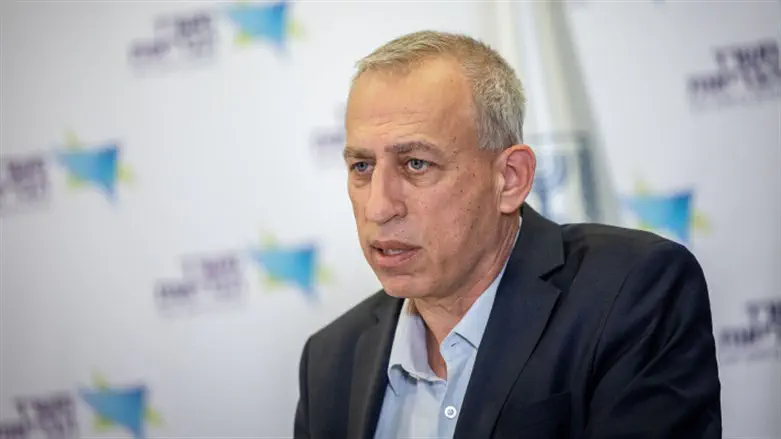
Health Ministry Director General Professor Nachman Ash on Wednesday morning expressed concern that the Omicron subvariant may be more infectious than the original Omicron strain of COVID-19.
In an interview with 103 FM Radio, Prof. Ash explained, "We estimate, based on the sequencing, that it's about 10% of the sequencing. Hundreds of Israelis. The greatest concern is that it is more infectious than its brother, the original Omicron. We estimate that it is about 30-50%. On the other hand, it does not cause worse illness. It is almost certain that the infection is the same as that of Omicron."
Prof. Ash also said that in his estimation, the subvariant will not cause a sixth wave: "I am saying this carefully, I hope very much that it won't. There are countries where it did raise infections after there was already a drop, such as Denmark. On the other hand, there are countries where its effect is less, maybe because of the widescale spread of the original Omicron variant. It's not that we're not concerned, but I hope and estimate that it will not change the picture and we will see ourselves exiting this wave."
"We are in a drop, the numbers are dropping in the past few days, and that's pretty clear in all sorts of parameters that we are following. We still don't see it clearly in the serious illness, and that we expect will take another day or two."
Regarding the burden on hospitals, Prof. Ash told 103 FM, "We are in a really tough place. The hospitals are very overwhelmed and it's a mix of the serious cases and lack of staff because of the illness. To continue in the current situation for a long time will be very difficult, and certainly if the numbers rise more than this - and we are pretty much on the edge."
"The overload certainly harms the quality of medical care, with all that involves. We know this, these numbers are high, and when you walk around the hospitals you see how the staff is really working very, very hard. Its ability to pay attention to each and every patient drops because there is an overload."
